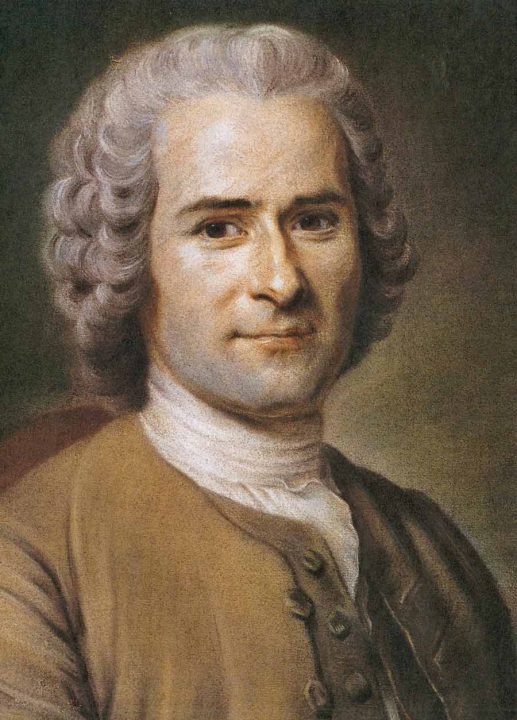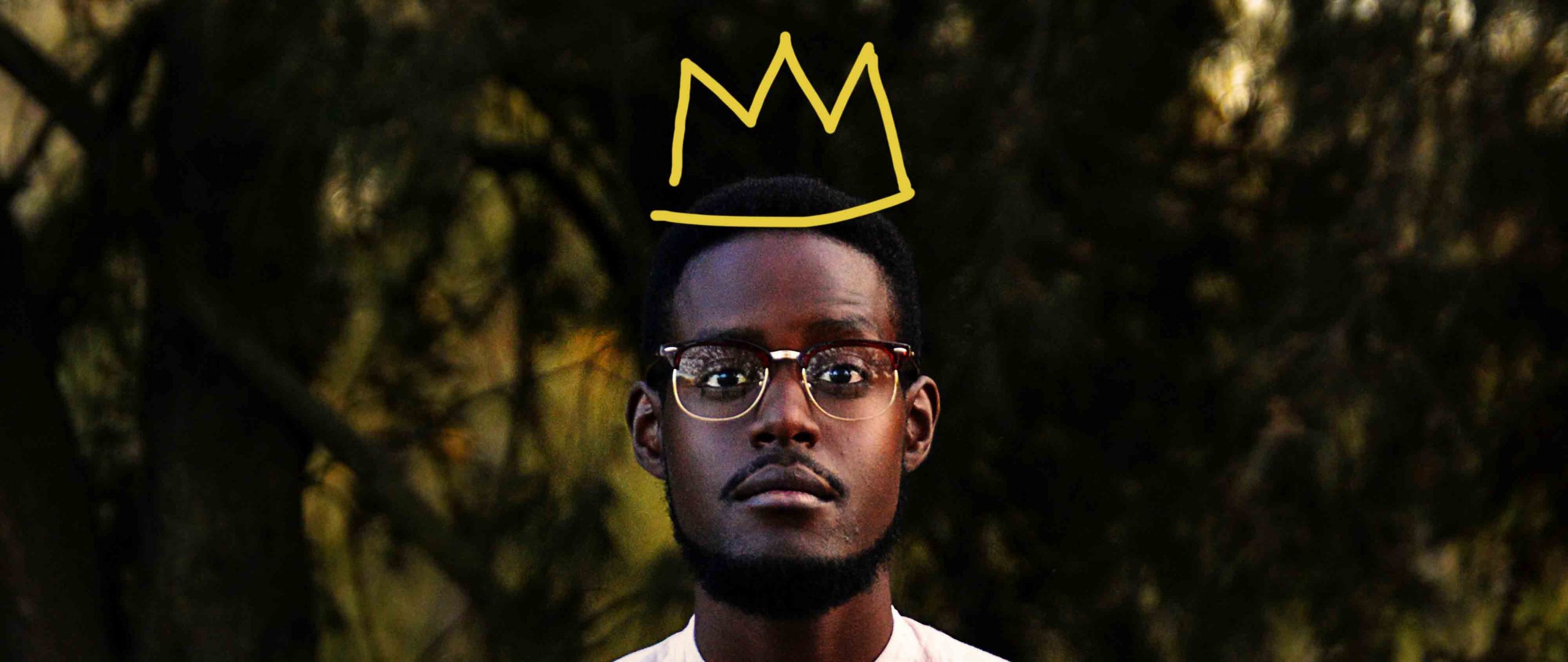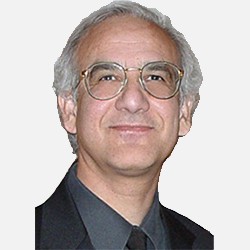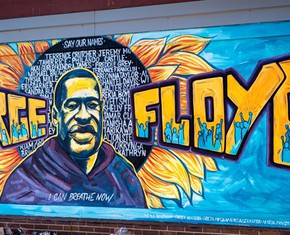The views expressed in our content reflect individual perspectives and do not represent the authoritative views of the Baha'i Faith.
How, the Baha’i teachings ask, can humanity achieve its inherent nobility? To help us answer that question, Baha’u’llah wrote:
O Son of Spirit! I created thee rich, why dost thou bring thyself down to poverty? Noble I made thee, wherewith dost thou abase thyself? Out of the essence of knowledge I gave thee being, why seekest thou enlightenment from anyone beside Me? Out of the clay of love I molded thee, how dost thou busy thyself with another? Turn thy sight unto thyself, that thou mayest find Me standing within thee, mighty, powerful and self-subsisting. – The Hidden Words
This statement of Baha’u’llah in his Hidden Words, written in 1857, presents a dialectical discourse on the primordial nobility of human beings, their actual debasement and self-alienation through forgetting their authentic spiritual nobility, and the overcoming of that self-estrangement by remembering one’s spiritual identity.
Baha’u’llah first emphasized our nobility by the fact that in this passage God addresses human beings as “Son of Spirit” – affirming the spiritual identity of all humans. Each part of the statement first talks of the primordial glory of humans, and then describes how humans have degraded themselves by forgetting their true spiritual identity. In this way they see society as a jungle, and thus reduce the regulating principle of life to the struggle for existence.
At the end of the statement, Baha’u’llah offers the solution: humans must look at themselves through the eyes of the heart and attain a self-consciousness of their spiritual reality, finding God within themselves and within all others. This way we would live not as beasts, focusing only on survival of the fittest, but instead as loving spirits with peace, mutual dignity and unity.
All the writings of Baha’u’llah emphasize this same point, defining discord and violence as befitting animals and not human beings, and defining a human being as one who dedicates himself to the service of the entire human race. In one untranslated statement, for example, Baha’u’llah forbids any human being to become debased and degraded before another. Thus he forbids the kissing of hands, kneeling and prostration before the feet of any one, including even Baha’u’llah himself. He states that it is only the invisible God who is worthy of kneeling and prostration.
The statement of Baha’u’llah in The Hidden Words affirms first richness, then nobility, then knowledge, and finally the loving character of humans. Each of these categories needs reflection and discussion in the light of his writings. For example, he states that God created human beings rich – but does not portray this richness as material wealth. Instead, he describes it as richness in spiritual perfections and potentialities, and concludes that we need education to actualize these potentialities.
Ultimately, Baha’u’llah condemned all cultures which apply the rule of the jungle to society and prevent the realization of human development. A culture which develops the glory of the human spirit in the realm of social relations brings about that richness. Thus the Baha’i teachings define humanity as a rich mine with hidden jewels, and say that only through education can this richness be realized.
From Rousseau to Baha’u’llah
In order to understand Baha’u’llah’s complex statement, it may be useful to discuss a famous phrase by the creative philosopher Rousseau. His influential book, The Social Contract, begins with this well-known sentence: “Man is born free and everywhere he is in chains.” Here he contrasts human freedom, when we supposedly lived free and unfettered in the prehistoric jungle, with human bondage, where we live constrained under social institutions, culture, and private property.

Despite the creativity of his work, Rousseau’s statement suffers major inadequacies for at least one reason: to be human, namely to think, requires language and thus culture and social interaction.
While in his other work on inequality, Rousseau defines the cause of human bondage as private property, the solution he offers in The Social Contract does not question private property. Rather he asks for direct political democracy or the unrestrained rule of the general will – despite the fact that the unrestrained rule of the general will has often proven itself a major cause of totalitarianism and the destruction of human freedom. One may say that unconsciously Rousseau was ahead of Marx. According to Marx, the realization of freedom requires abolishing private property and rejection of all forms of economic inequality. He believed that such communism brings about the “withering” of the state. For Marx, there can be no communist state because communism necessarily eliminates the state.
Perhaps Rousseau understood that communism and forced equalization of economic outcomes can only happen under an interventionist state that regulates every aspect of human life. Otherwise, in the absence of such control all kinds of inequality would emerge. Rousseau’s general will represents a totalitarian state in which society has the right to regulate all aspects of individual’s life – but that results in precisely the ultimate lack of freedom and imposition of bondage.
However, Rousseau does pose a most important question. Baha’u’llah’s statement in The Hidden Words also makes a contrast between the way God created humanity, and the way man has debased himself. His solution affirms the imperative of overcoming human self-alienation from his or her spiritual truth. But such spiritual consciousness must become the occasion for a reconstruction of the world in accordance with the inherent dignity and nobility of all human beings.
The Human Being in Pre-Modern, Modern, and Postmodern Worldviews
Between the pre-modern and modern views on human dignity, both groups have supported the thesis of human nobility. The traditional, Eastern, and pre-modern view believes that humans are noble and sacred because of their belief in God and religion. Humans are defined as the image of God and therefore as sacred and noble. This view is present in various religions. In the view of the Persian prophet Zartosht (Zarathustra), humans are the highest and last creation of God, Ahura Mazda, the Lord of Wisdom. The same idea is found in Judaism where humans are made in the image of God. Christianity and Islam have said the same thing. In Hindu scriptures like the Bhagavad Gita and the Upanishads, the ultimate spiritual truth is the identity of the human soul, atman, with God. In Buddhism the highest mystical knowledge is the discovery of the Buddha nature in all beings, particularly the human soul.
Despite these lofty teachings, the traditional praise of humans was rarely actually extended to concrete and living human beings. On the contrary, humans were traditionally treated in the most abased manner. The caste system, the burning of widows, ritual impurity of unbelievers, hostility against women, the use of violence and jihad against unbelievers, support of slavery, political and spiritual despotism – namely unquestioning obedience to clerics – all serve as examples of this terrible treatment.
As a reaction to this actual degradation of human beings in traditional logic, modernity tried to defend human nobility. But this time, the basis of human nobility arose from the rejection of religion and God. The background is of course the Christian misunderstanding of the Bible which assumed that through original sin, all humans by blood are inherently wicked and evil. Thus the philosophers of the 18th century Enlightenment thought that by rejecting religion and God they could bring dignity to humans. They were successful in extending human dignity at the level of some social institutions – for example, they defended political democracy. But their rejection of the spiritual truth of human beings led them to increasingly degrade humans to the level of animals and objects.
Almost a century after Pascal’s assertion that men are born tyrants and thus they pursue their self-interest, Voltaire said that the cause of human civilization, prosperity and harmony comes from the fact that humans are selfish and follow their interests. The economist Adam Smith reached a similar conclusion, and entire economic systems are based on his theories. This philosophy turned what was initially perceived to be wicked and made it moral and noble. Other philosophers went even further, portraying God as a mirror image of despotic kings, and concluding that therefore, democracy and freedom require rejection of God. Later Feuerbach surmised that the reason for human misery is that humans have alienated their perfections from themselves and have projected it in the clouds, calling it God – thus the only way that humans can become noble is to reject God. Nietzsche said that as long as God exists humans cannot be free, and thus he declared the death of God. The final stage of this philosophical evolution resulted in asocial interpretations of Darwinism, in which the human being became purely an animal who should live on the basis of the law of jungle and the struggle for existence.
Due to the failures of pre-modern and modern views, a postmodern culture emerged in the contemporary world. This time the prevailing postmodern philosophy rejected the idea of human nobility as meaningless. It argued that there is no such a thing as a human being, nor does anything or anyone have objective value – therefore invalidating any talk of human rights or human dignity. What was left was cultural relativism, and the result was that our contemporary world believes in everything and nothing.
A Spiritual Alternative to Cultural Relativism
Baha’u’llah’s writings combine the positive aspects of the pre-modern, modern, and postmodern viewpoints while rejecting their negative aspects. Like the pre-modern worldview, the Baha’i Faith affirms the dignity of all humans as spiritual beings. But unlike pre-modern traditionalism, Baha’u’llah affirms, just as most modern discourse does, the need to reconstruct the world so it becomes a mirror of the spiritual truth of all human beings.
Unlike the pre-modern and modern worldviews, and like postmodern discourse, Baha’u’llah extols the diversity of our human reality, and argues for the unique Baha’i concept of unity in diversity. Baha’u’llah’s teachings define political democracy, social justice, the independent investigation of truth, a culture of communication and friendship with all human beings, elimination of international anarchy, the unity of all religions, and rejection of all prejudices as the logical implication of a global spiritual consciousness, and the essential requirements for realization of peace, justice and unity in the world.
















Comments
Sign in or create an account
Continue with Googleor